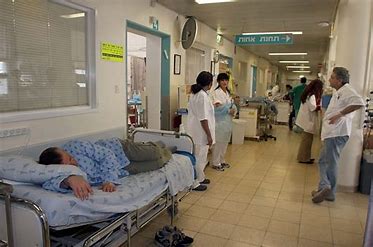 The Healthcare System in Belgium is considered as one of the best ever created to support both the old and aging population. This agenda to prepare under doctor healthcare policy was nurtured at the time the World War in Europe was at its peak in 1944.
The Healthcare System in Belgium is considered as one of the best ever created to support both the old and aging population. This agenda to prepare under doctor healthcare policy was nurtured at the time the World War in Europe was at its peak in 1944.
"And so at that time, there were politicians working here together with civil servants to formalize social protection and rationalize it because it was a means to avoid a pivot after the war and to provide stability.
People at that time were afraid of all kinds of community revolutions or other and so in that sense, the introduction of a sole system of social protection was evinced to provide that kind of stability and social cohesion." Said, Koen Vleminckx – Counsellor General, Federal Public Services Social Security.
Depression is one of the highest-ranking issues that the healthcare insurance in Belgium is treating but that's not the only problem.
The issue is that there is a younger working force which is smaller in number contributing to health insurance and helping a larger majority of the aging population.
The government is now cutting costs. “And so we try to reduce some privileges by introducing savings and cost cards.
But we try to do it in a right and balanced way.” Said, Koen Vleminckx – Counsellor General, Federal Public Services Social Security.
The Social Security Fund now stands at 77 billion euros which are 30% of Belgium's GDP. The citizens make a compulsory contribution to the healthcare system as high as 40% with other schemes such as unemployment benefits and pensions followings.
"Social Protection is not for luxury, some people see it as a luxury but it's not the case, its part of your political and economic fabric.I think in Africa and as well as Europe it will work in a necessary way.
It will provide the necessary stability especially among our younger generation." Said, Koen Vleminckx – Counsellor General, Federal Public Services Social Security.
"So, first of all, the healthcare has become a lot more sophisticated than it was maybe 30 or 40 years ago. It is therefore much costly to provide this kind of machines.
And don't forget that even though we have put more money into health care our population grows. You see when I came in 1986, we had 16 million people now we are over 40 million." Said, MirjamBlaak – Uganda's Ambassador to Belgium/EU.
For a healthy economy to thrive, any country certainly needs a healthy workforce and where Uganda continues to struggle with its ailing health care system countrywide, the cost of medical care still remains a pill for the privileged.
The broken healthcare systems if not addressed could be the next leading big cause of brain drain and persistent political instability in the Great Lakes Region.
